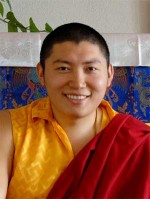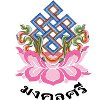HH. Phakchok Rinpoche message in November 2010
 Dear All,
Dear All,
How have you all been? Happy and Healthy, I hope.
Today is again Guru Rinpoche Day, but a special one. It was during the 10th of this lunar month back in the 8th century, when Guru Rinpoche first arrived into Tibet on the invitation of King Trisong Detsen with the suggestion of the great Indian Buddhist master, Shantarakshita to subdue the local hostile negative forces and to consecrate the great monastery of Samye and to forever plant the unshakable seed of sacred Buddha dharma. He was thus known as Padmasambhava, the Lotus-Born Guru.
The 38th King or the 2nd of the Three Dharma Kings of Tibet, Trisong Detsen was indeed pivotal in introducing Buddhism to Tibet and hence a great king, yet a simple 11th century yogi states that there is simply no king like him. In a beautiful musical score titled “faith”, which a friend of mine gave me, I first heard about the above statement. In which, Sogyal Rinpoche recites the life and liberation of this extraordinary great yogi so eloquently that tears of devotion naturally outpours.
And it goes something like this: (verbatim)
Milarepa said, I am a king, yet no king like me I have such wealth Milarepa as you know was Tibet’s great saint, yogi and poet Who inspired millions of people But he spent the years in retreat in the humblest condition Wearing just a lounge cloth and eating nettles So much that his body became emaciated and became almost green
Yet he says, I am a king and yet no king like me I have such wealth I have the seven attributes that lead to enlightenment I have the eight noble path This is my wealth
My treasure house is filled with these riches I have the sky above as my castle I have the ground below as my state I am the happiest king in the world This is what Dilgo Khyentse Rinpoche use to say
Once when you have this view
All the delusory perception of samsara may rise in your mind And be like the sky When the rainbow appears in front of it You are not particularly flattered And when the clouds appear, when the dark clouds appear You are not particularly disappointed either There is a deep sense of contentment
And you chuckle from inside
As you see the façade of samsara and nirvana This view will keep you constantly amused Like a little smile bubbling away all the time Enjoy yourself, this self And you’ll be happy And I wish you that I wish you my deepest wish that you discover that for yourself This great treasure And you keep bubbling, bubbling, bubbling, bubbling and become contagious also
The lines above by Rinpoche are simple yet profound in their meaning. For those of you who need to refresh your memory on the seven attributes and the eight noble paths, here’s a brief overview:
The Seven Attributes: (Qualities)
Faith, discipline, generosity, learning, a sense of moral shame, a sense of ethical conscience to oneself, and intelligence.
The Noble Eightfold Path leading to the cessation of suffering:
Right view, intention, speech, action, livelihood, effort, mindfulness, and concentration.
Enjoy and have a wonderful day!
Sarva Mangalam,
Phakchok Rinpoche
